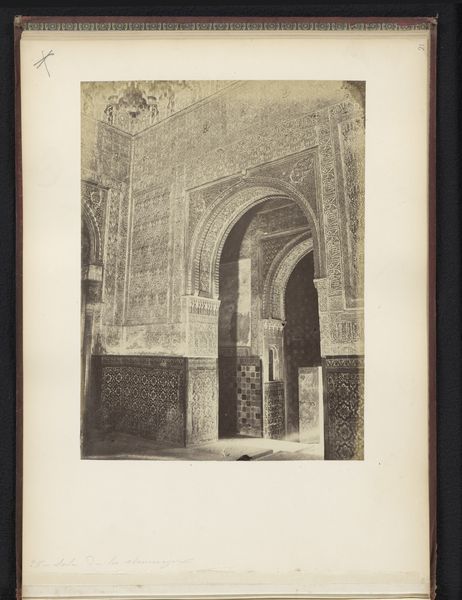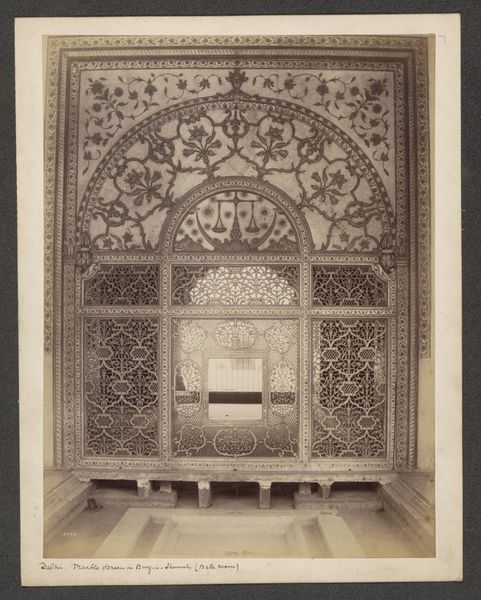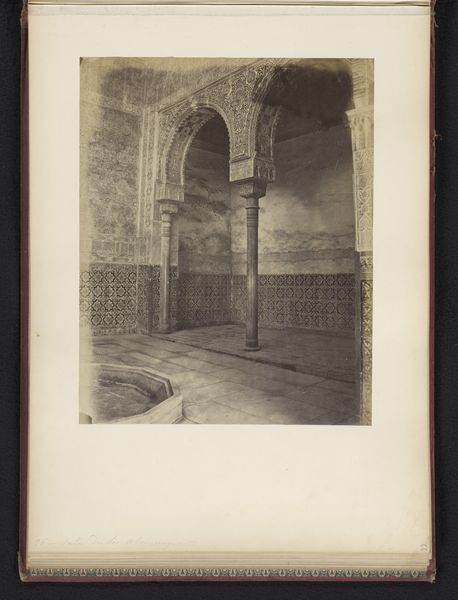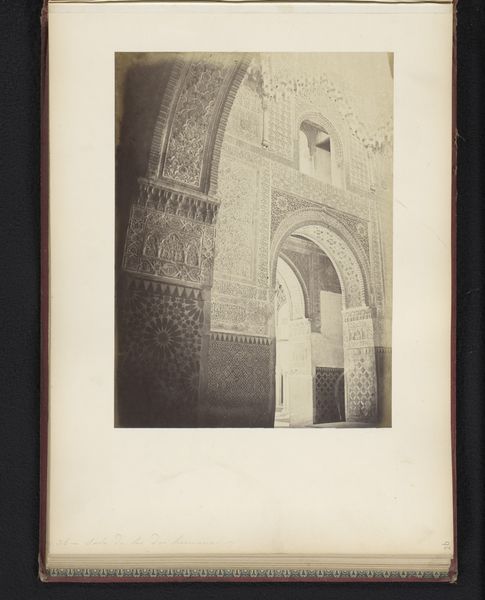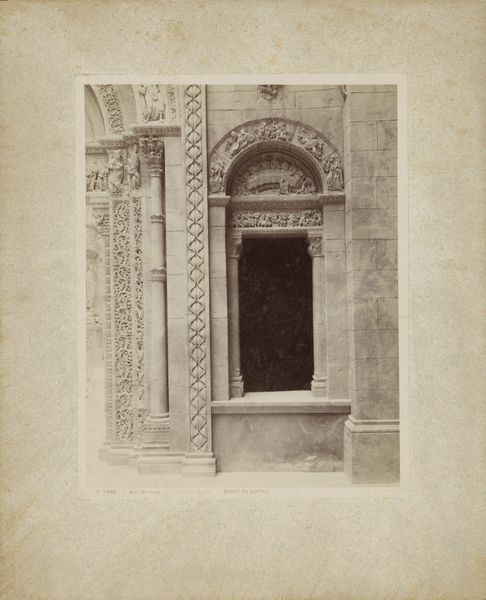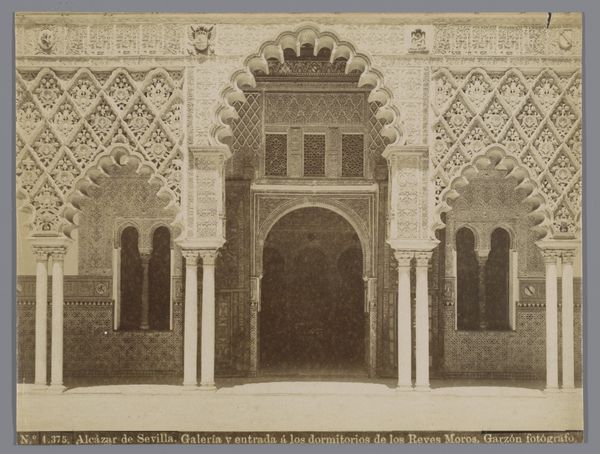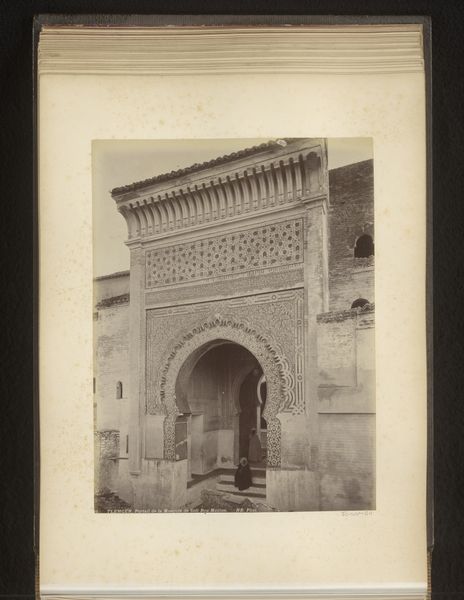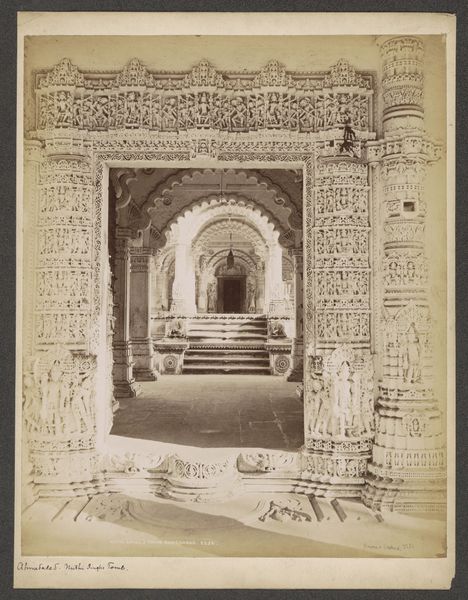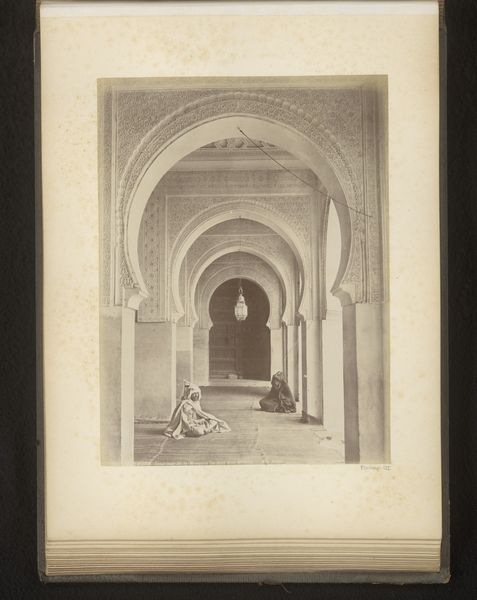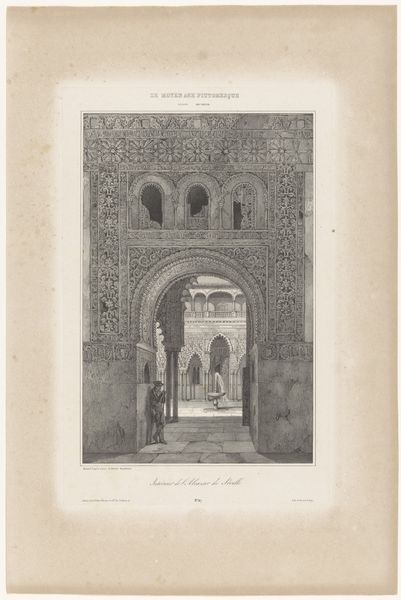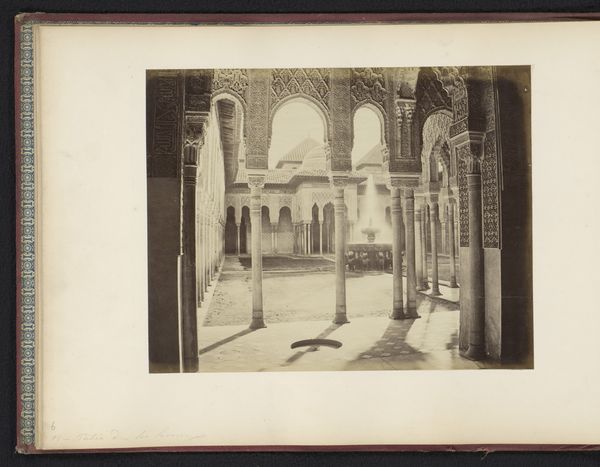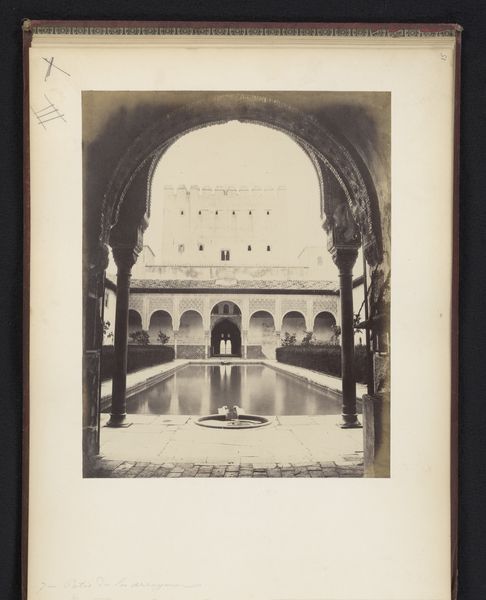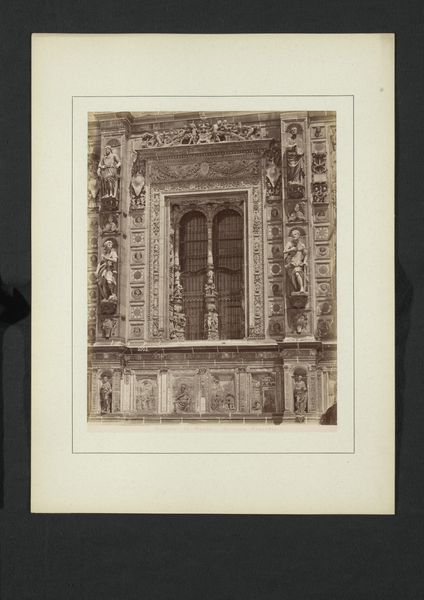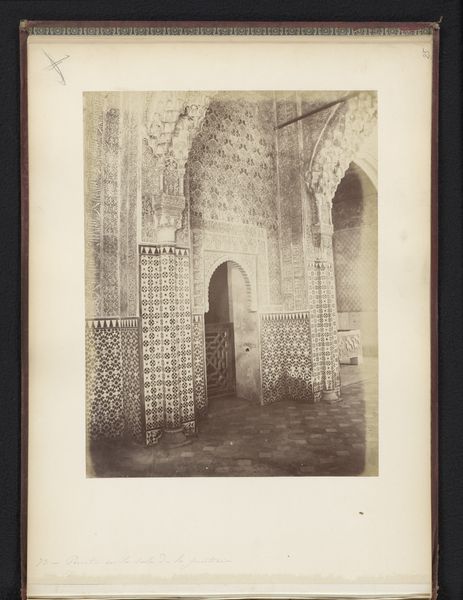
photography, gelatin-silver-print
#
aged paper
#
toned paper
#
muted colour palette
#
light coloured
#
landscape
#
photography
#
orientalism
#
gelatin-silver-print
#
cityscape
#
islamic-art
Dimensions: height 206 mm, width 158 mm
Copyright: Rijks Museum: Open Domain
Editor: So this is "Ruimte in het Alhambra met uitzicht op de wijk Albaicín in Granada," a gelatin silver print by Rafael Garzón, dated before 1898. It’s quite striking—the intricate architecture contrasts with the hazy cityscape beyond. What stands out to you about this piece? Curator: It’s interesting to consider this photograph within the context of Orientalism, a Western fascination with the "exotic" East. Photography like this often served to reinforce a particular vision of Islamic culture for a European audience. How do you think the composition contributes to that? Editor: I guess the focus on the ornate interior, framing the outside view, sort of romanticizes the place. It feels like looking through a carefully constructed lens. Is that something Garzón might have been consciously doing? Curator: It's difficult to say definitively without more context about Garzón himself. However, we can see how the choices – the framing, the subject matter – participate in a broader visual language of the time. Think about who was consuming these images, and what ideas they already held about Spain and Islamic art. This photo, like many others, becomes part of a discourse shaping perceptions of the 'other'. Editor: That makes sense. It’s more than just a pretty picture; it’s involved in a power dynamic. What would someone seeing this photo back then have thought versus someone today? Curator: The original viewers may have seen confirmation of their preconceptions. For us today, it's important to look critically at how images like this both reveal and conceal. They’re historical documents but also cultural products. Editor: It’s fascinating how a single image can be so complex when you consider the history behind it. Curator: Exactly! And thinking about its place within museum collections or public display, how is its narrative shaped now? How can we, as curators, ensure it is presented responsibly and with proper context? Editor: Definitely gives me something to think about regarding art’s role beyond its aesthetic appeal. Curator: Agreed. It reveals the intricate ways art interacts with and is shaped by cultural and socio-political currents, even through a seemingly simple view from Alhambra.
Comments
No comments
Be the first to comment and join the conversation on the ultimate creative platform.
